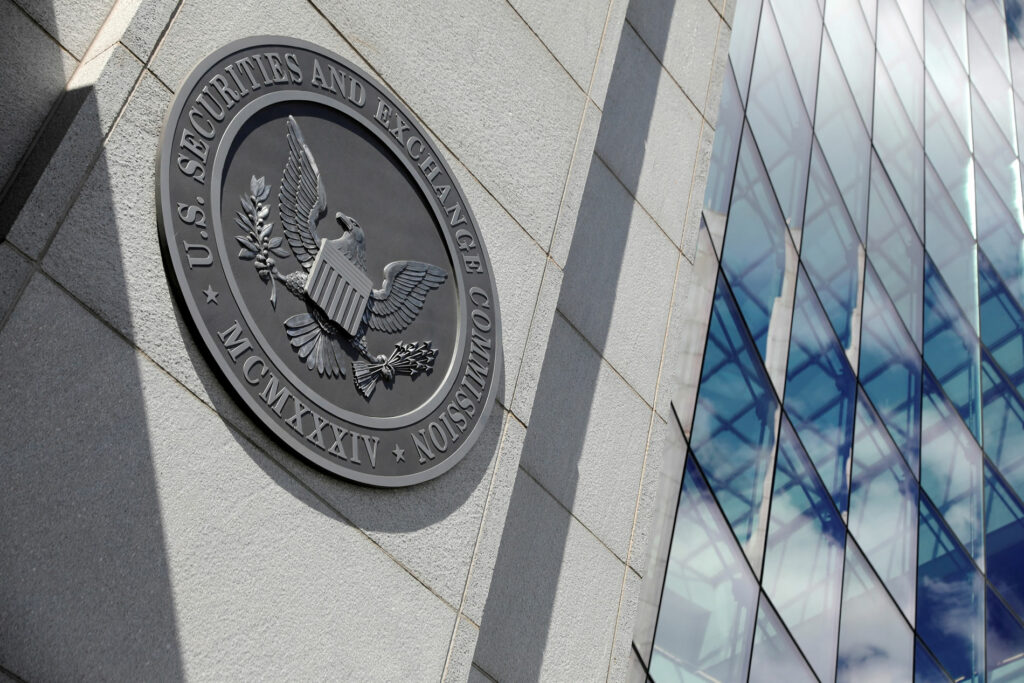The Securities and Exchange Commission (SEC) has filed an emergency lawsuit against Roy Hill and Eric Shelly, and their controlled entities for engaging in a fraudulent securities offering Clean Energy Technology Association, Inc. (CETA) and Freedom Impact Consulting, LLC (FIC). It has raised over $155 million from more than 500 investors. The U.S. District Court for the Western District of Texas (Waco Division) issued orders on May 3, 2023, temporarily restraining the defendants’ ongoing offerings, freezing their assets, appointing a receiver, and providing other emergency relief.
According to the SEC’s sealed complaint, Hill and Shelly have been accused of offering investments in FIC-sponsored funds. They claimed that these funds would utilize investor funds to acquire carbon capture units (CCUs) produced by CETA, a device manufacturer. CETA allegedly leases these CCUs to oil and gas producers, asserting that it improves the recovery and marketability of oil and gas. The defendants also assured investors that FIC and CETA would provide returns based on the revenues generated from operating the CCUs.
However, the SEC alleges that Hill and Shelly deceived investors by making false statements. They falsely claimed that the CCUs were patented, that a major oil and gas company was a customer and that the FIC-sponsored funds consistently achieved a quarterly return of ten percent.
The SEC’s actions against Hill and Shelly are part of a broader effort to clamp down on fraudulent activities within the financial sector. In the past, the SEC has targeted individuals and entities engaged in Ponzi-like schemes, as evidenced by the charges filed in February 2021 against three individuals and their affiliated entities for running a scheme that raised over $1.7 billion from securities issued by a New York-based asset management firm and registered investment adviser, GPB Capital.
The case against Hill and Shelly illustrates the SEC’s continued commitment to protect investors from fraudulent activities and to ensure the integrity of the financial markets. With a focus on identifying and prosecuting those who exploit investors for personal gain, the SEC’s actions send a strong message to potential fraudsters that their activities will not go unnoticed or unpunished.
As the SEC intensifies its scrutiny of fraudulent activities in the financial sector, it is also paying attention to the increasing use of network member firms by audit companies. This is in response to the potential for inconsistent quality in auditing practices that may arise from utilizing network affiliates in their work. The SEC’s efforts to maintain high-quality auditing standards are essential in preventing accounting fraud and ensuring the accuracy of financial statements provided to investors.
In a separate case, Hill International and its former executive had settled with the SEC on charges related to fraudulent filings. The sale of a division of the firm closed in May 2017, leading to the creation of HKA. However, Hill International later had to refile three years of financial statements, and both Hill and the former executive settled the charges without admitting or denying the claims.
While the SEC has been proactive in its pursuit of fraudulent activities, some critics argue that the Commission is making up rules as it goes along and inventing regulations, leading to confusion and uncertainty in the market. However, the SEC’s primary goal remains to protect investors and maintain the integrity of financial markets. The lawsuits against Hill, Shelly, and their controlled entities, along with other enforcement actions, serve as a reminder of the SEC’s commitment to safeguarding investors from fraudulent schemes.
In conclusion, the SEC’s lawsuit against Hill, Shelly, and their controlled entities demonstrates the agency’s dedication to combating fraudulent securities offerings and maintaining transparency within the financial sector. By holding individuals and entities accountable for their actions, the SEC aims to foster a fair and efficient market that protects the interests of investors and upholds the public’s trust in the financial system.


